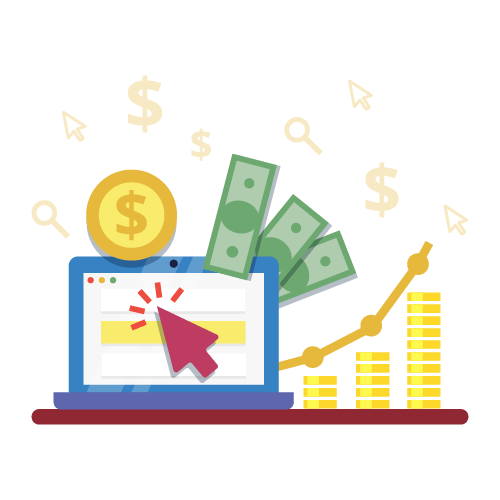
These days, you can’t surf a social media site or do a quick Google search without running into some sort of ad campaign offering products or services. You may be thinking, “Why can’t I do this for my business?” Well, the short answer is – you can! However, the long answer is: when it comes to running digital ads for your business, there’s a lot of detail and expertise involved.
To get the most optimal outcome for your budget, you’ll need to hire a paid media specialist. Keep reading for more details on paid media and how a paid media specialist can help you bring in leads for your business – or sell more product!
What is Paid Media?
Paid media is fairly straightforward. In simple terms, it includes any marketing you pay for. In the traditional marketing world, this could consist of TV commercials, print ads, or billboards. In the digital marketing sector, paid media encompasses paid online advertising like social media advertising, pay-per-click (PPC) ads, Google Ads, etc. Utilizing this type of media, whether digital or traditional, can improve your brand’s reach, increase sales, and generate website traffic.
What is a Paid Media Specialist?
A paid media specialist’s main goal is to help their business or client grow through ad success. But before growth can be seen, there’s planning, implementing, analyzing, and optimizing involved. The day-to-day responsibilities of a paid media specialist vary from company to company. Still, someone in this position can generally expect to be responsible for managing various ad campaigns, whether they be social media ads or print ads.
What to Expect From a Paid Media Specialist
This position requires many creative and analytical skills. As stated earlier, they must plan ad campaigns, implement best ad practices, continuously analyze the data to make improvements, and optimize ads when opportunities arise. But what goes into that?
Ad Planning
When planning an ad campaign, a paid media specialist must consider various factors like campaign goals, budget, target audience, keyword research, and more.
- Campaign Goals: Is the goal of your ad to improve brand awareness, increase sales, or increase website traffic? Setting a specific and measurable goal for your campaign will help determine what methods you will need to utilize to achieve these goals.
- Paid Media Budget: In an ideal world, your ad budget would be infinite! But in reality, it is just a fraction of the overall marketing budget. Your campaign will need to make the most of this budget without limiting the performance of your ads. The funding allotted for the ads will influence how aggressive your campaigns are and how many campaigns you will have at once.
- Target Audience: An ad will see no ROI if it’s being shown to the wrong person. The target audience for an ad should be relevant to the business to be impactful.
- Keyword research: This research allows you to determine different search terms people may use when searching online for information on products or services and the volume of each term (how many times it is searched per month). Keyword research is an imperative step for Google Ads. Having this knowledge handy can help create campaigns relevant to the needs of your potential customers.
Ad Copywriting
Writing copy for an ad may seem easy, but there’s an art (and science) behind encouraging potential customers to purchase your service or take action. You’ve set your goals and done your keyword research, and now your ad needs to be written.
Ad copy is specific because the goal is to inspire someone to take the desired action. You want to answer your potential customer’s questions and address their concerns, all while highlighting the benefits of your product or service. Concise and impactful is the goal.
Analyzing and Optimizing
Did your ad campaign achieve its goals? Sometimes you’re able to fulfill your objectives the first go around. But often, some changes need to be made to an ad before you can see success. Depending on your goals, a paid media specialist can measure and analyze different metrics like:
- Traffic Metrics: These metrics can include engagement, impressions, or click-through rates.
- Conversion Metrics: Some examples of conversion metrics to measure are conversion rates, cost-per-conversion, and lead value.
- Return on Investment (ROI): Measuring an ad’s return on investment should include measuring all of the above (and more) and tying it to sales.
The aim should never be to “set it and forget it” when it comes to ads. Ad optimization is incredibly beneficial and is an important part of an ad’s success. Steps can be taken to optimize an ad campaign, including A/B testing, targeting new keywords, or making bid adjustments.
Should I Hire a Paid Media Specialist?
If you’re asking yourself if you should hire someone to handle your advertising, it may be a sign that you need assistance with that aspect of your marketing. Luckily, the value of hiring a paid media specialist is unmatched! A company or individual with expertise in paid advertising can take on all the work included while also guaranteeing success. Putting your paid media in good and trustworthy hands can make you feel confident in your investment.
If you’re ready to take the next step in your digital marketing, the Marketing Refresh paid media team is prepared to help. Learn more about our online advertising services on our website, then contact us to get started!


